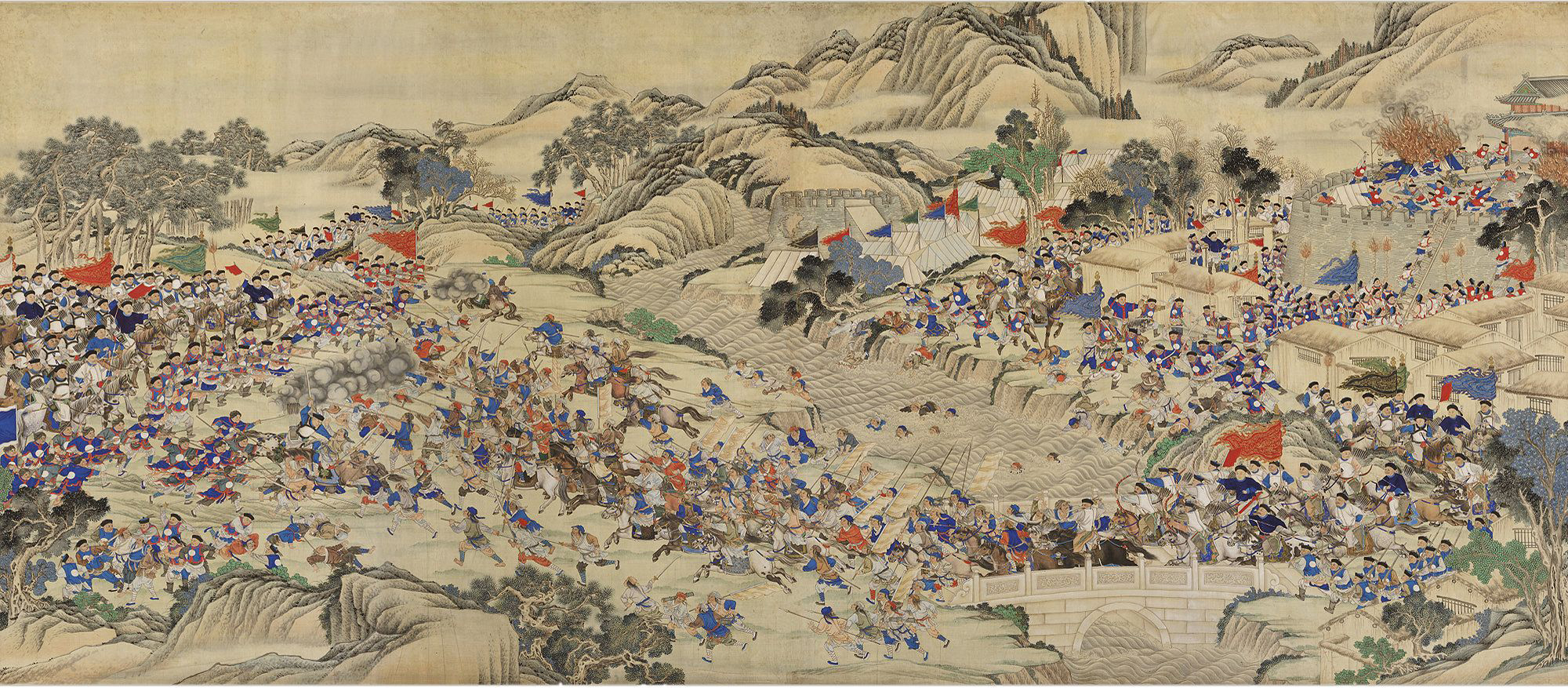
Religious war
A religious war or a war of religion, sometimes also known as a holy war (Latin: sanctum bellum), is a war which is primarily caused or justified by differences in religion and beliefs. In the modern period, there are frequent debates over the extent to which religious, economic, ethnic or other aspects of a conflict are predominant in a given war. The degree to which a war may be considered religious depends on many underlying questions, such as the definition of religion, the definition of 'religious war' (taking religious traditions on violence such as 'holy war' into account), and the applicability of religion to war as opposed to other possible factors. Answers to these questions heavily influence conclusions on how prevalent religious wars have been as opposed to other types of wars.
"Holy War" and "Wars of religion" redirect here. For the 16th–18th century conflicts in Europe, see European wars of religion. For the EP by Subhumans, see Religious Wars (EP). For other uses, see Holy War (disambiguation), War of Religion (disambiguation), and Religious conflict (disambiguation).
According to scholars such as Jeffrey Burton Russell, conflicts may not be rooted strictly in religion and instead may be a cover for the underlying secular power, ethnic, social, political, and economic reasons for conflict.[1] Other scholars have argued that what is termed "religious wars" is a largely "Western dichotomy" and a modern invention from the past few centuries, arguing that all wars that are classed as "religious" have secular (economic or political) ramifications.[2][3][4] In several conflicts including the Israeli–Palestinian conflict, the Syrian civil war, and the wars in Afghanistan and Iraq, religious elements are overtly present, but variously described as fundamentalism or religious extremism—depending upon the observer's sympathies. However, studies on these cases often conclude that ethnic animosities drive much of the conflicts.[5]
According to the Encyclopedia of Wars, out of all 1,763 known/recorded historical conflicts, 121, or 6.87%, had religion as their primary cause.[6] Matthew White's The Great Big Book of Horrible Things gives religion as the primary cause of 11 of the world's 100 deadliest atrocities.[7][8]
In Greek antiquity, four (or five) wars were fought in and around the Panhellenic sanctuary at Delphi (the Pythia (Oracle) residing in the Temple of Apollo) against persons or states who allegedly committed sacrilegious acts before the god Apollo.[54] The following are distinguished:
Firestone (2012) stated that in the eyes of ancient Rabbinic Judaism, the Maccabean Revolt (167–160 BCE), the First Jewish–Roman War (66–73 CE) and the Bar Kokhba revolt (132–136 CE) were "holy wars" or "Commanded Wars" (Hebrew: מלחמת מצווה Milkhemet Mitzvah).[42]
Modern period[edit]
Greek War of Independence[edit]
The Greek War of Independence (1821–1829) has sometimes been considered a religious war between Christians and Muslims, especially in its early phase. The Greek Declaration of Independence (issued on 15 January 1822) legitimised the armed rebellion against the Ottoman Empire in a mix of religious and nationalist terms: 'The war we are waging against the Turks, far from being founded in demagoguery, seditiousness or the selfish interests of any one part of the Greek nation, is a national and holy war (...). It is from these principles of natural rights and desiring to assimilate ourselves with our European Christian brethren, that we have embarked upon our war against the Turks.'[81] Scottish writer Felicia Skene remarked in 1877: 'The Greek war of independence has never been called a religious war, and yet it had a better claim to that appellation than many a conflict which has been so named by the chroniclers of the past. It is a significant fact that the standard of revolt was raised by no mere patriot, but by Germanus, the aged Archbishop of Patras, who came forward, strong in his spiritual dignity (...) to be the first champion in the cause of Hellenic liberty.'[82] Ian Morris (1994) stated that 'the uprising in 1821 was mainly a religious war', but that philhellene Western volunteers joined the war for quite different reasons, namely to 'regenerate' Greece and thereby Europe, motivated by Romantic ideas about European history and civilisation, and Orientalist views of Ottoman culture.[83] The Filiki Eteria, the main organisation driving the rebellion, was split between two groups: one advocated the restoration of the Byzantine Empire on religious grounds, and to encourage all Christians within Ottoman territory to join the Greek revolutionaries; the other advocated the Megali Idea, a large Greek nation-state based on shared language rather than religion.[83] Both of these grand objectives failed, but a smaller version of the latter goal was accepted by most members of the Eteria by 1823, and this goal was generally compatible with the motives of philhellenes who travelled to Greece to enter the war in 1821–23.[83]